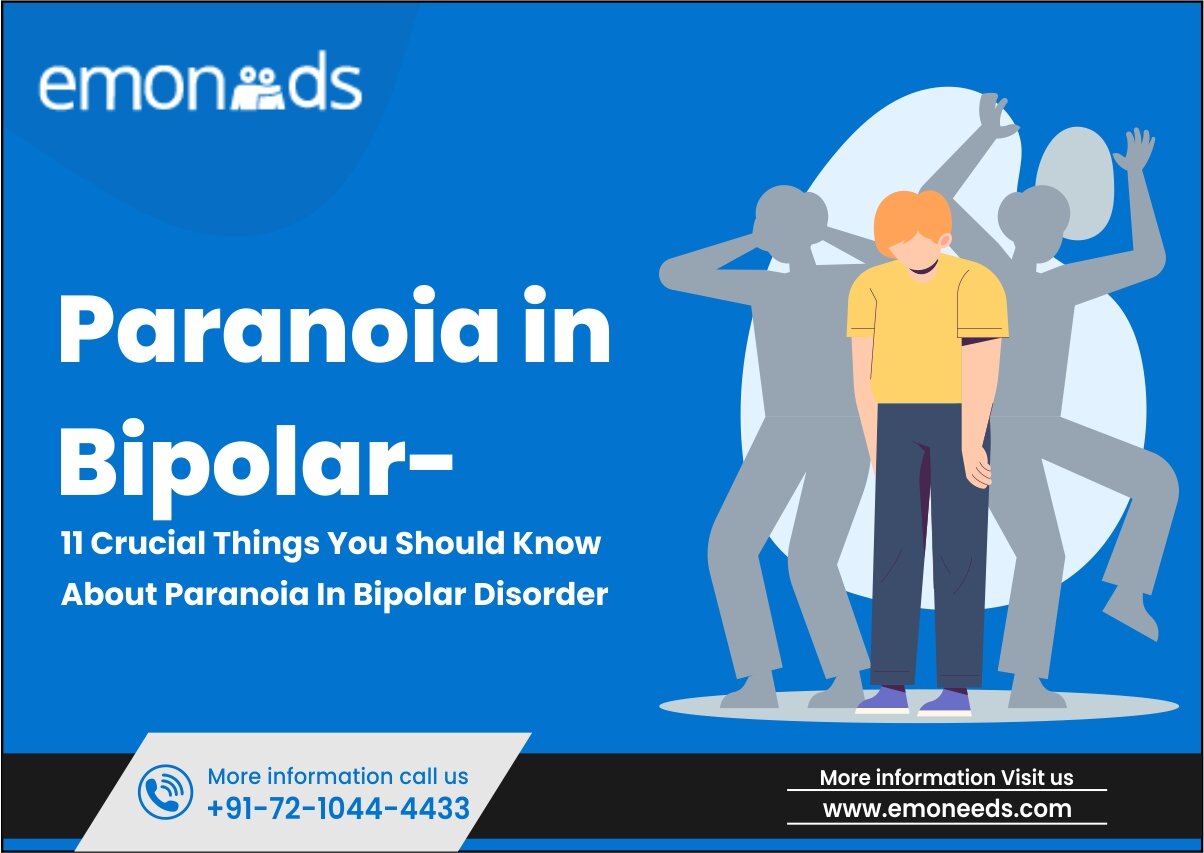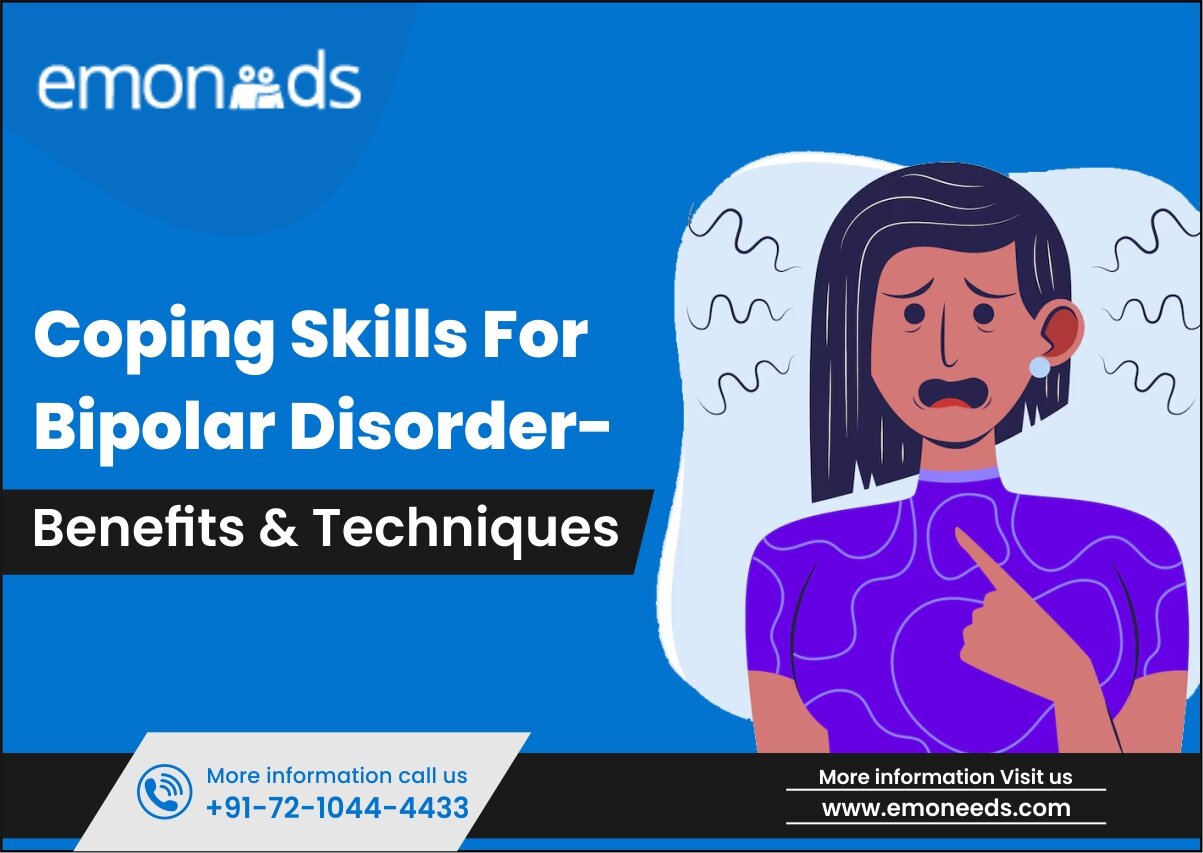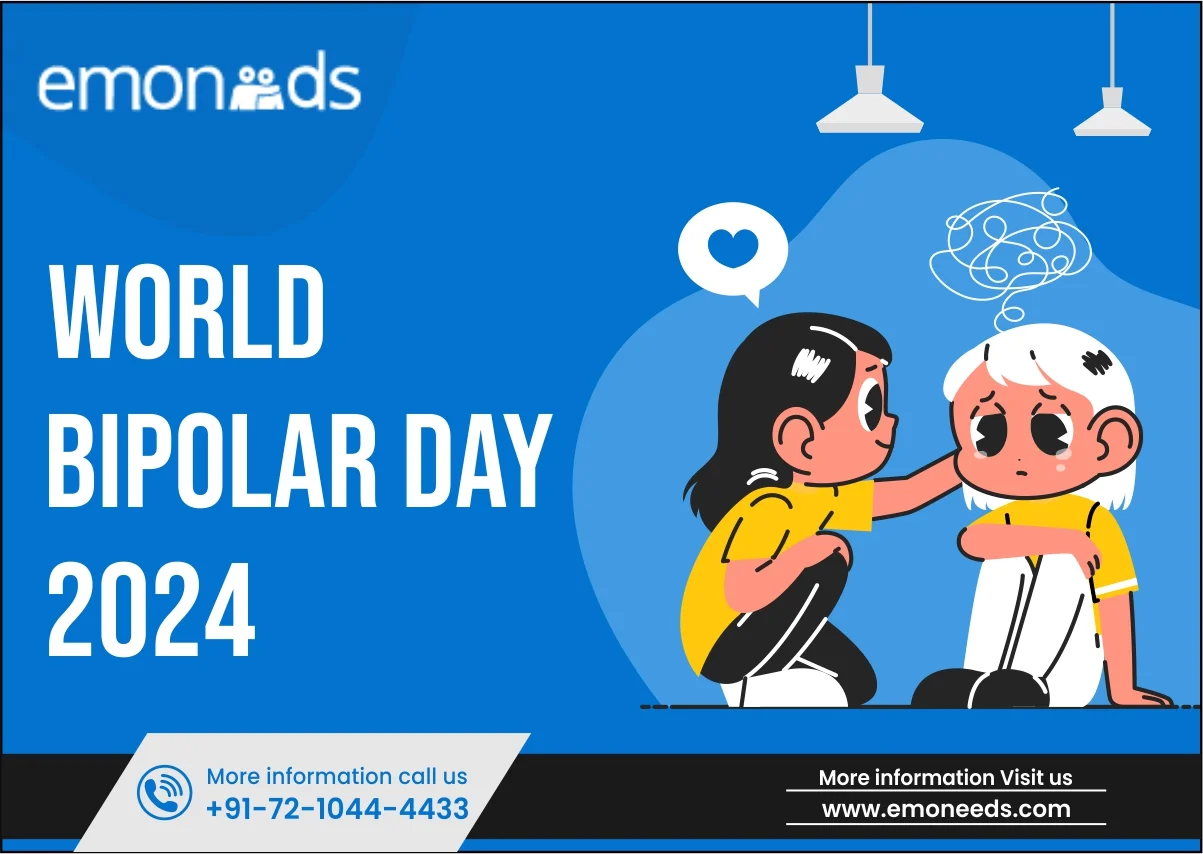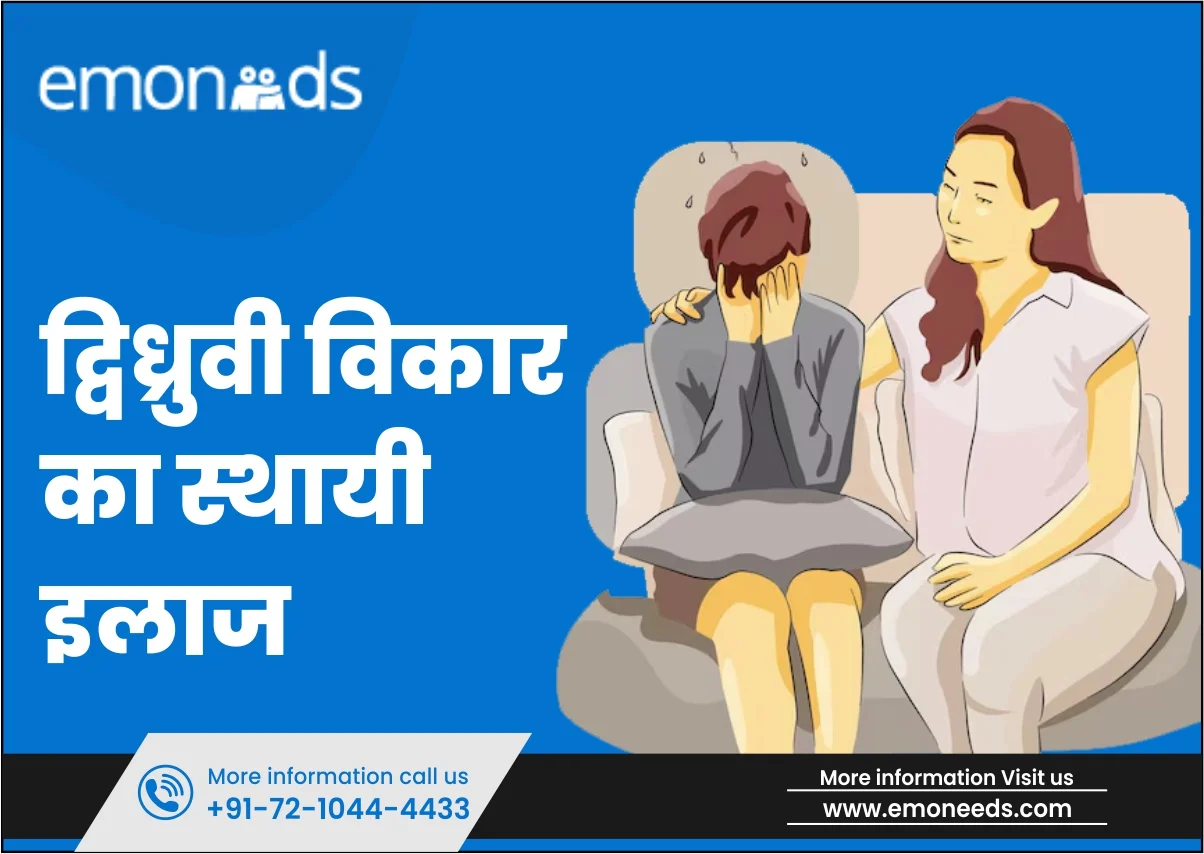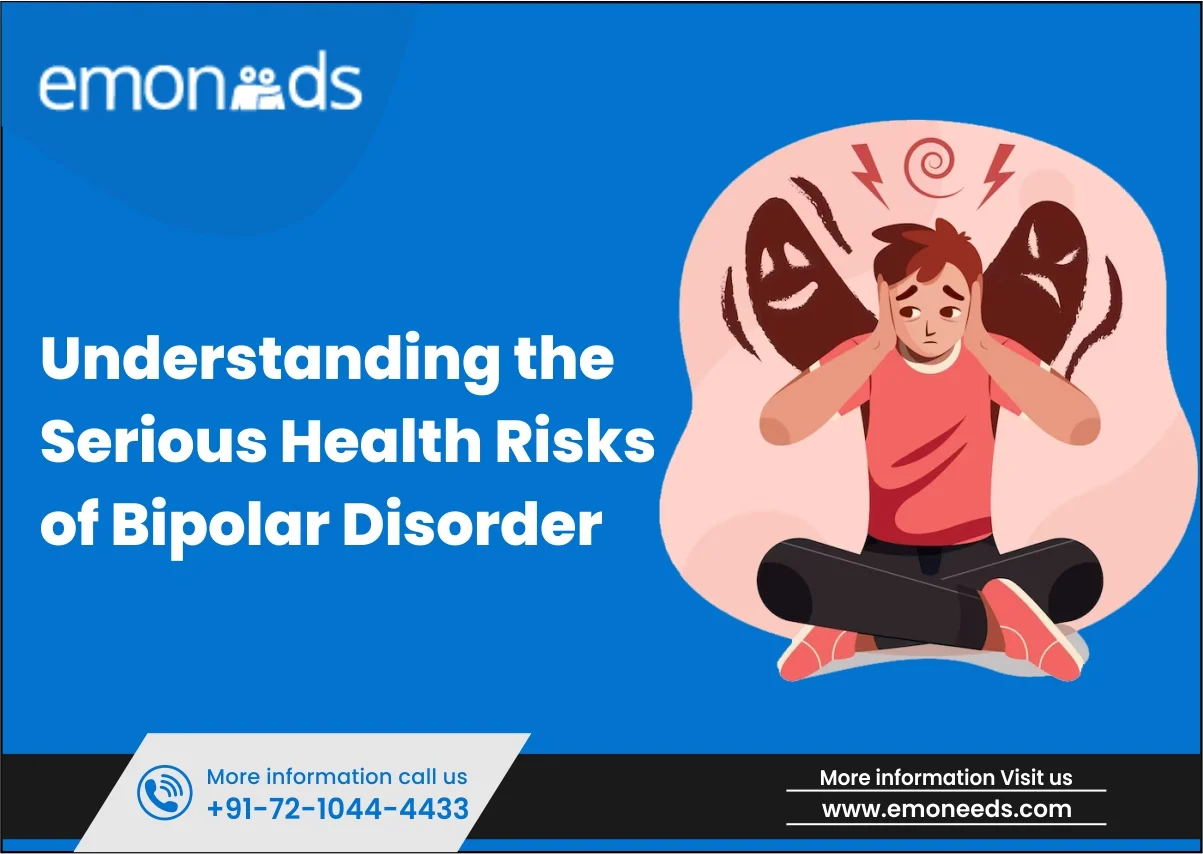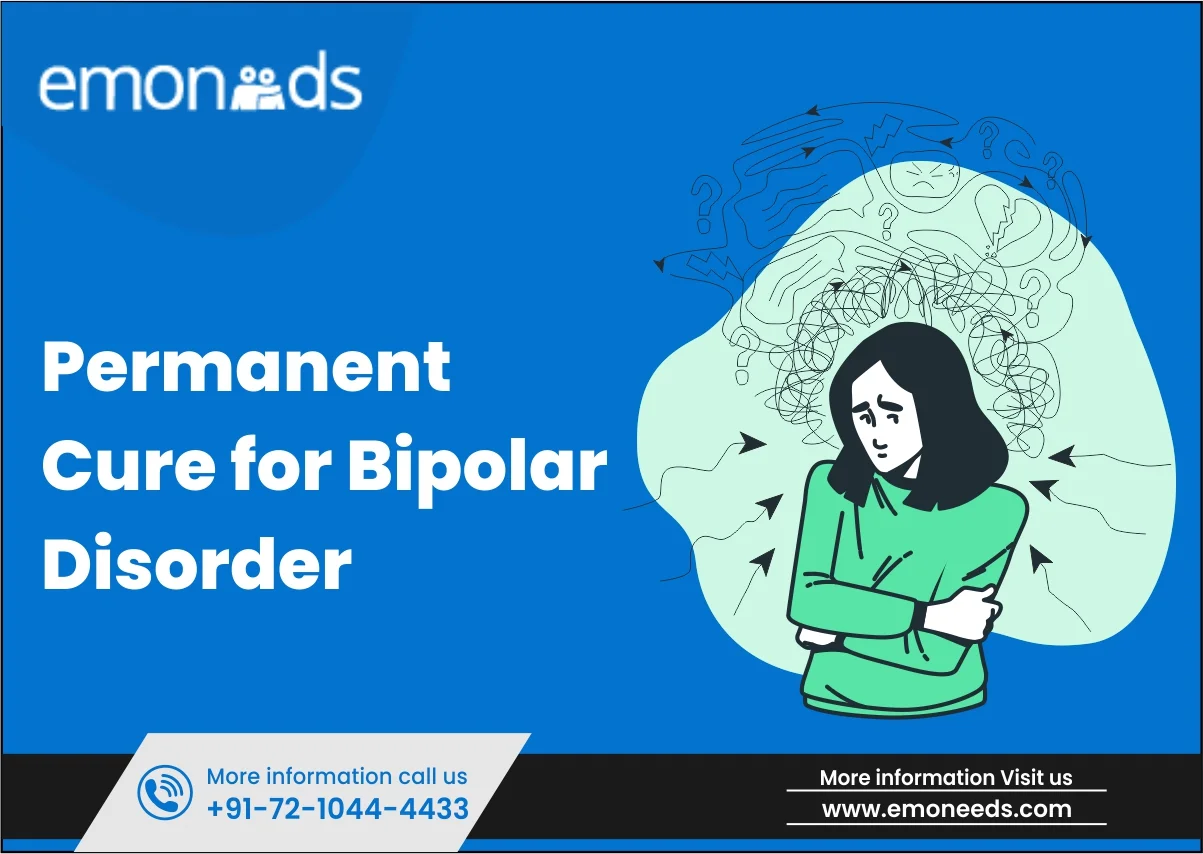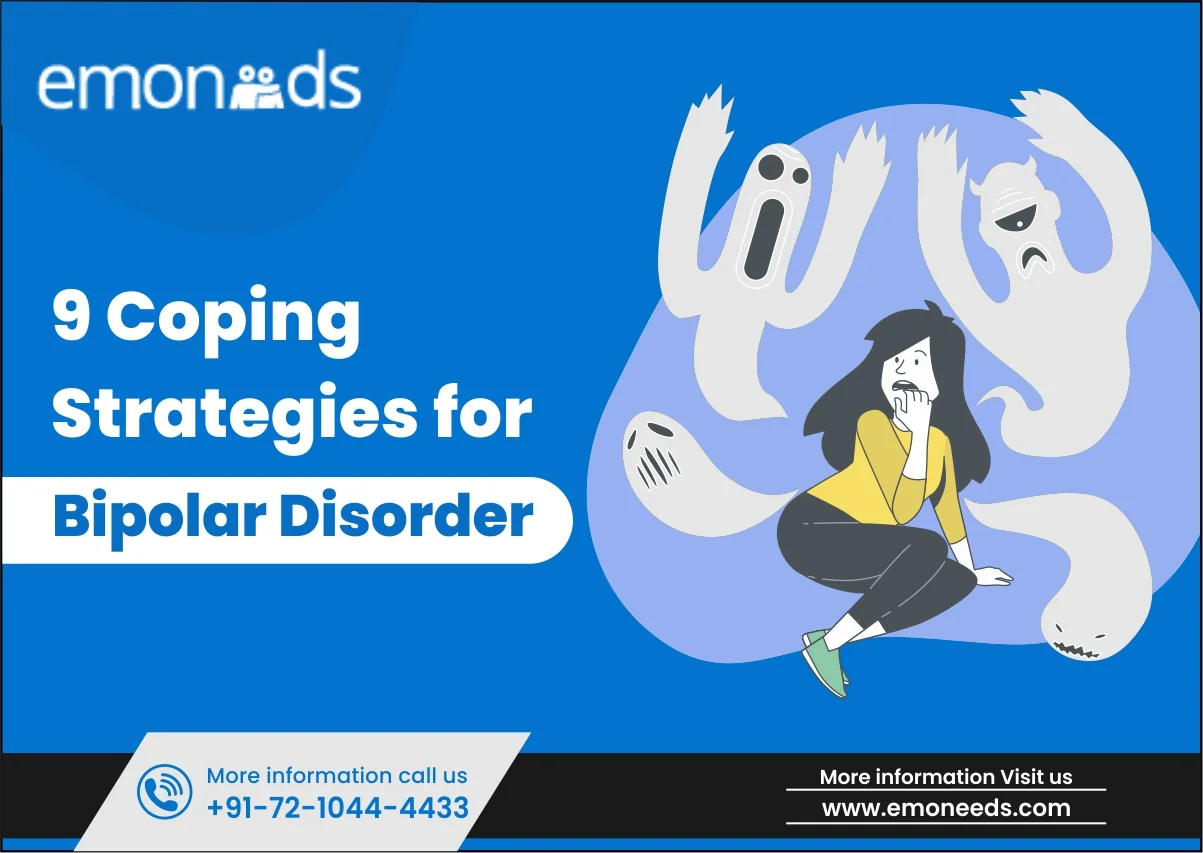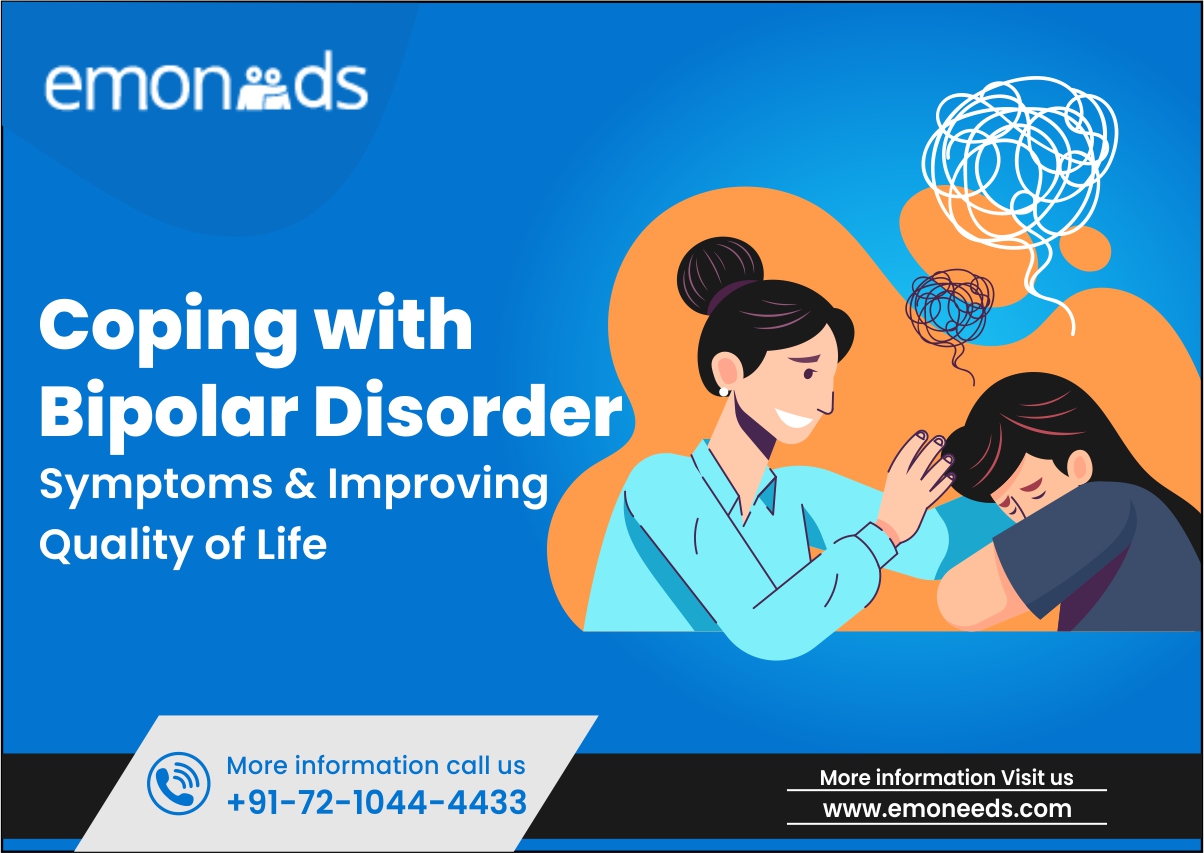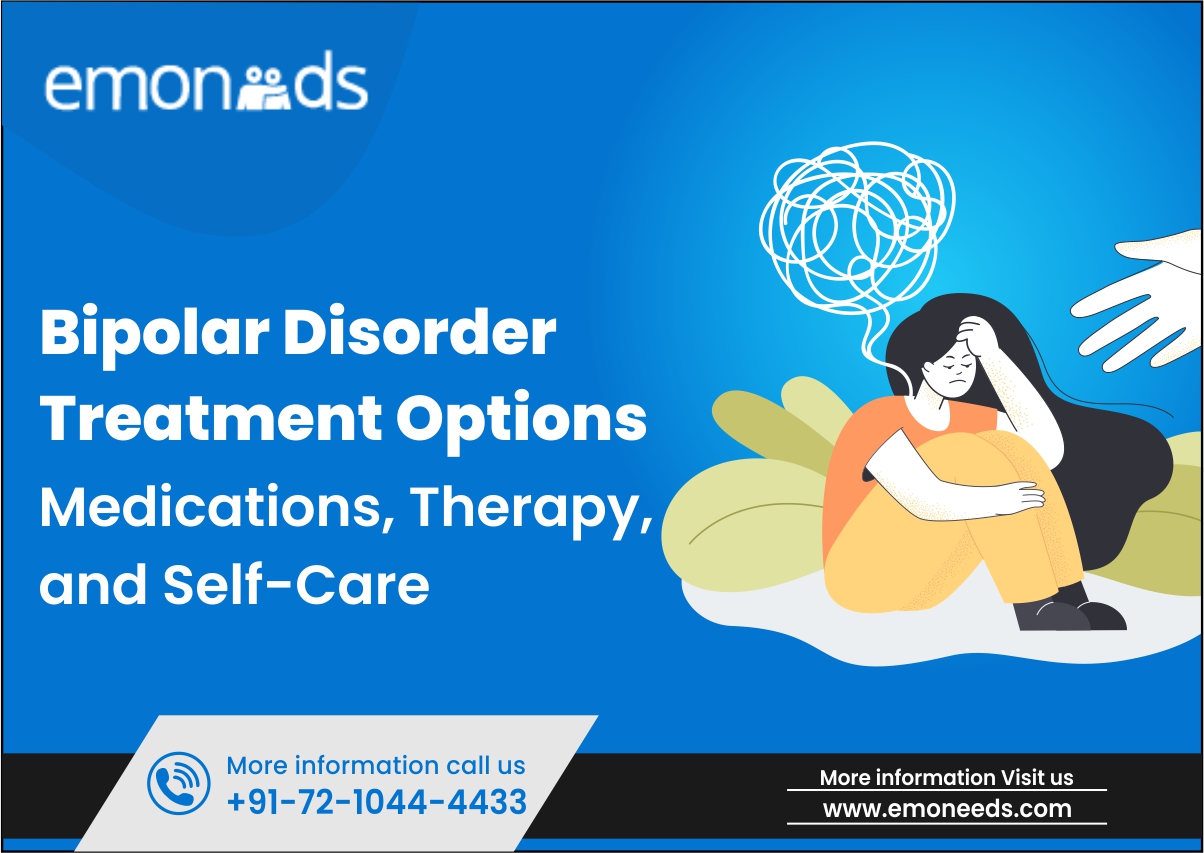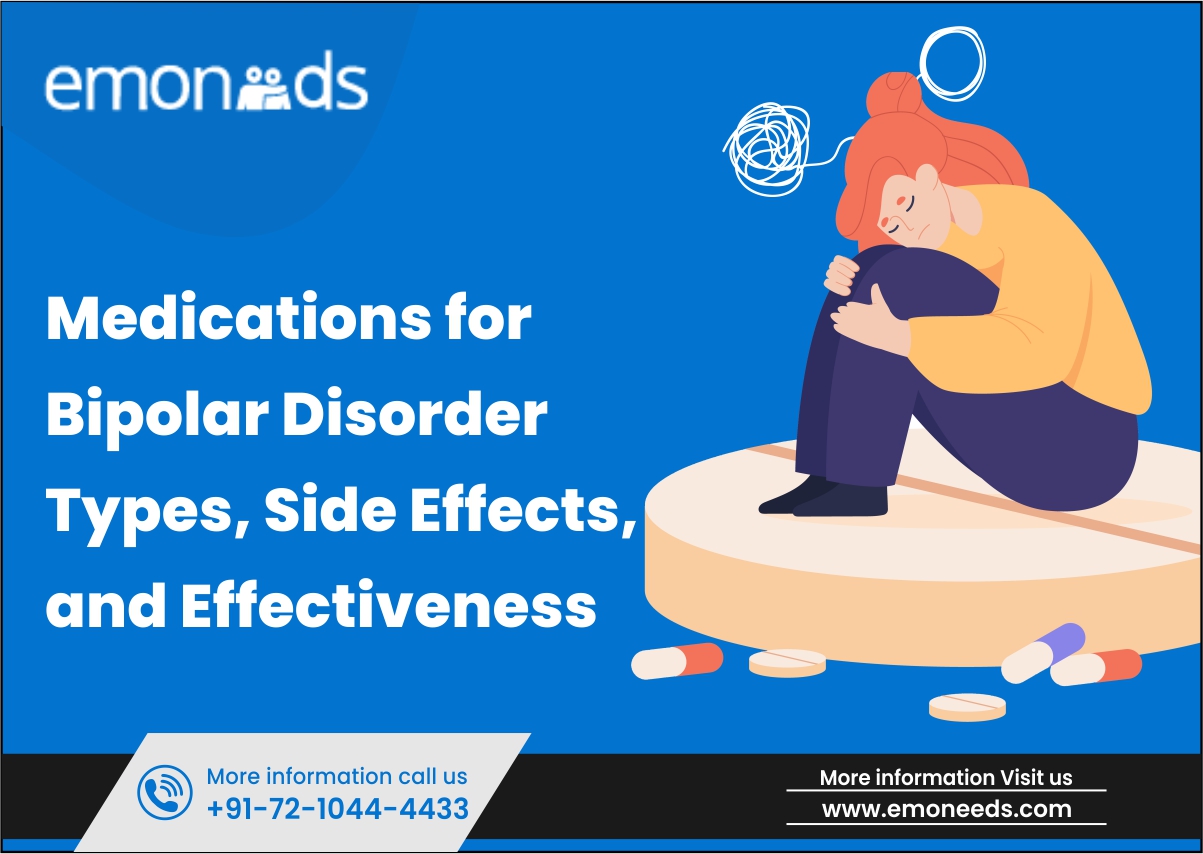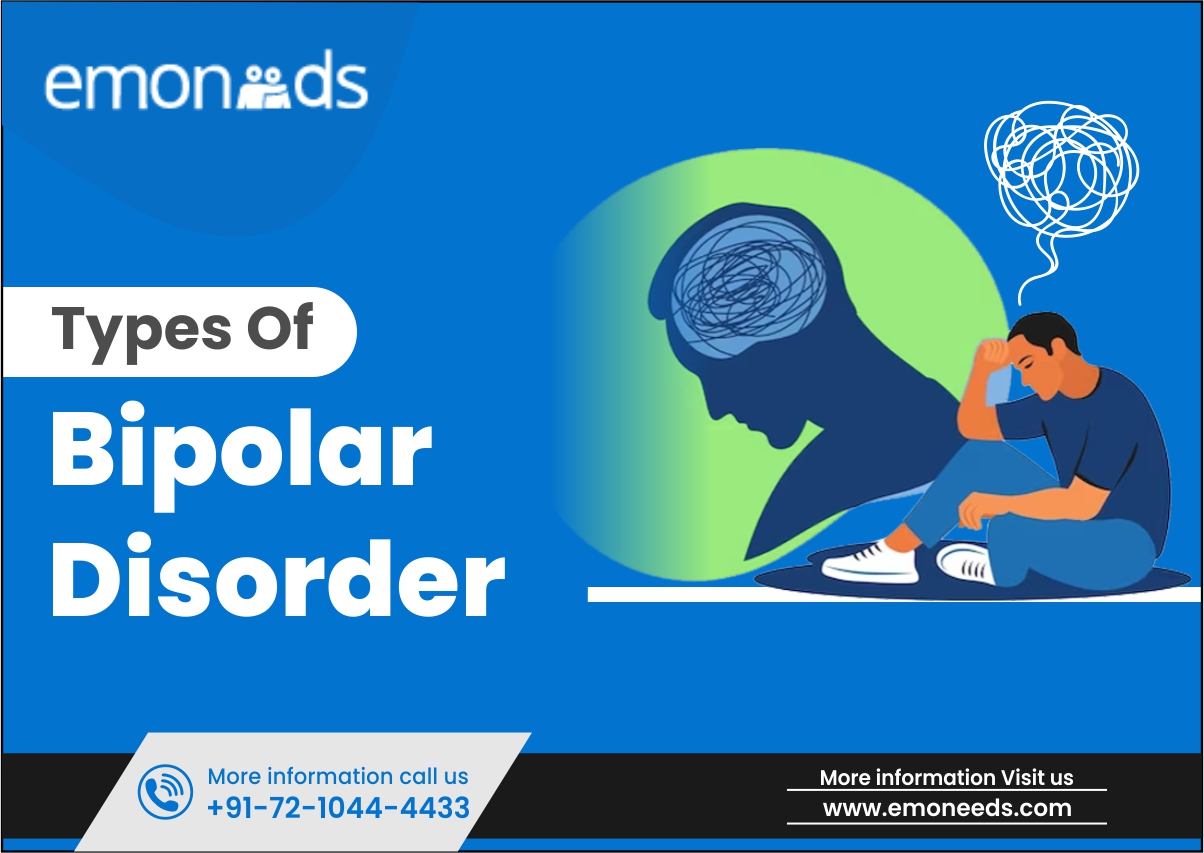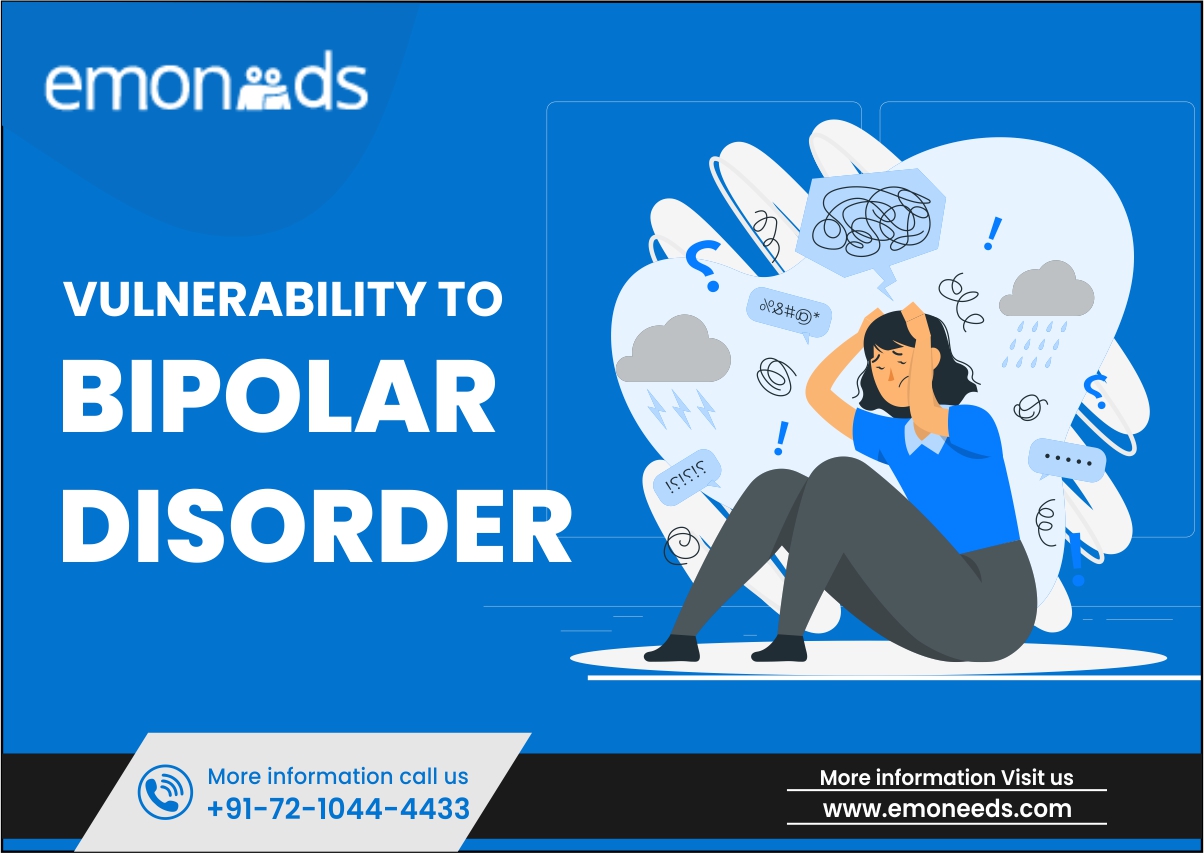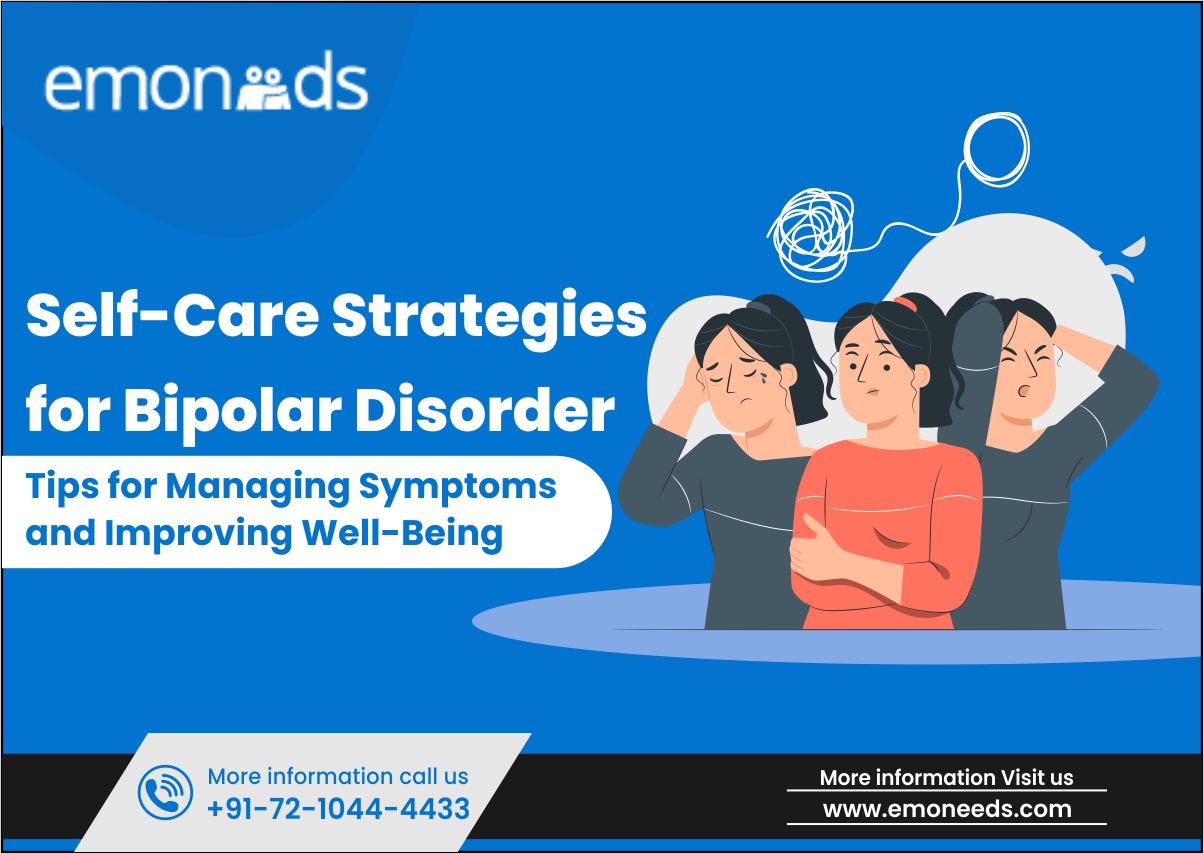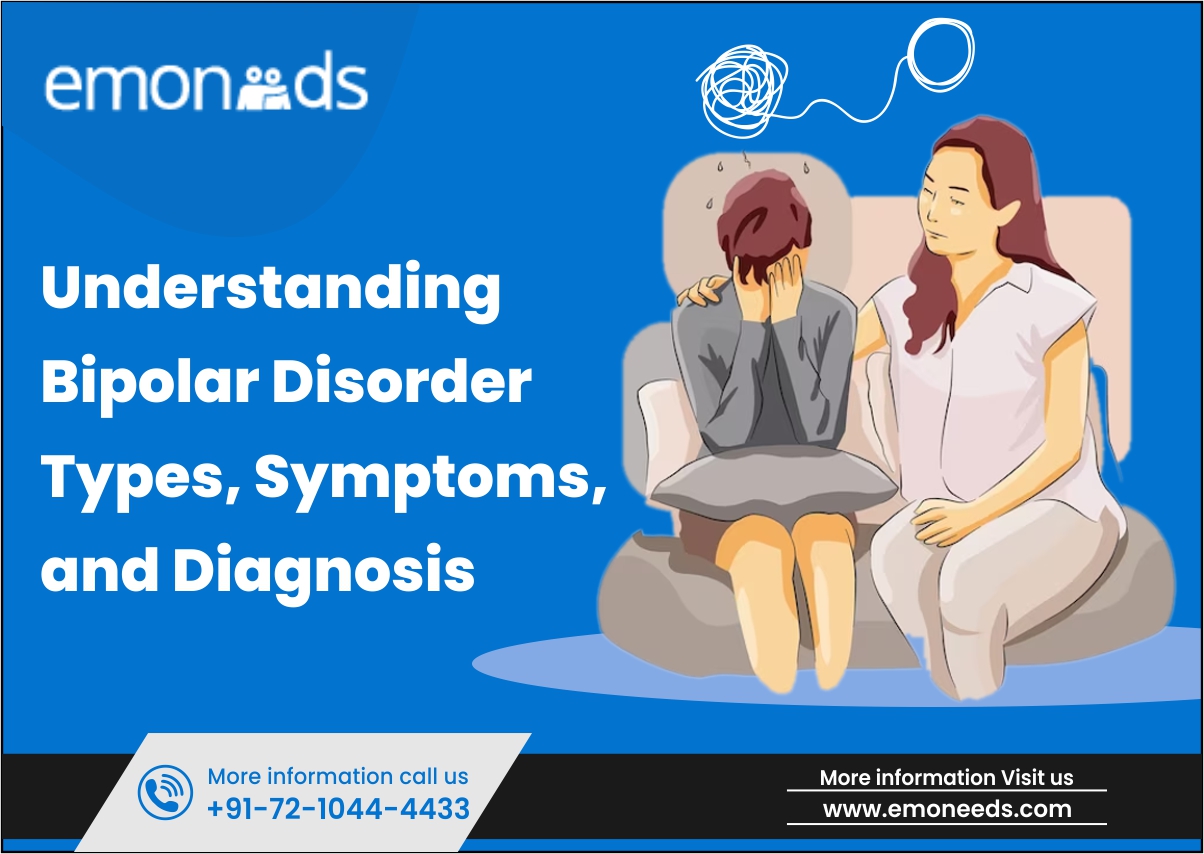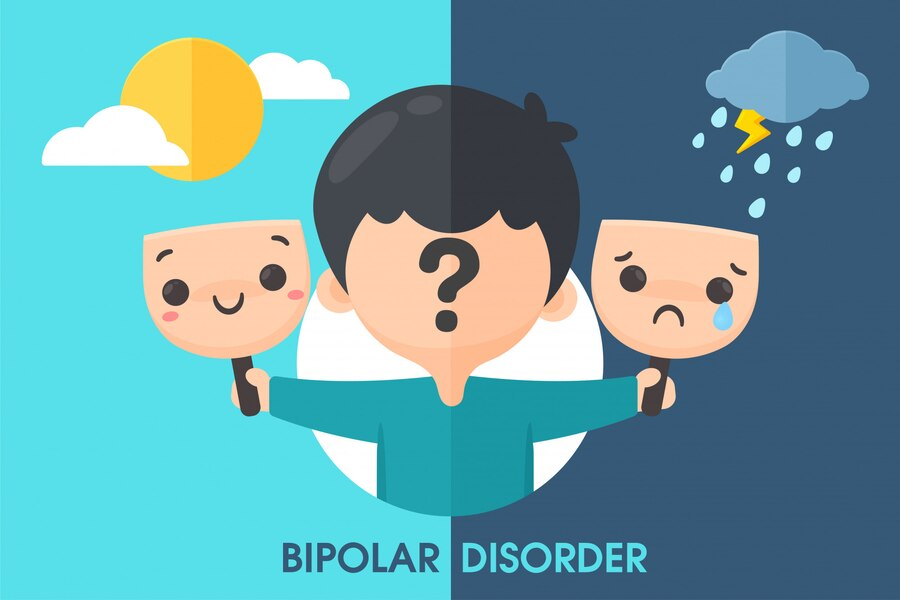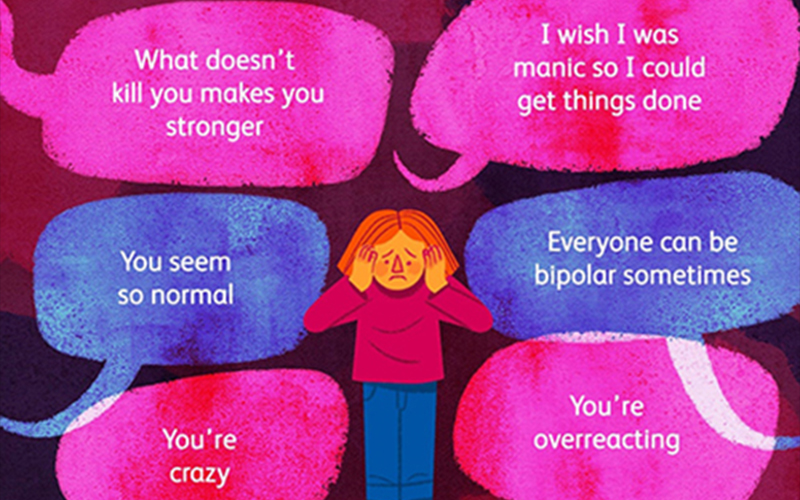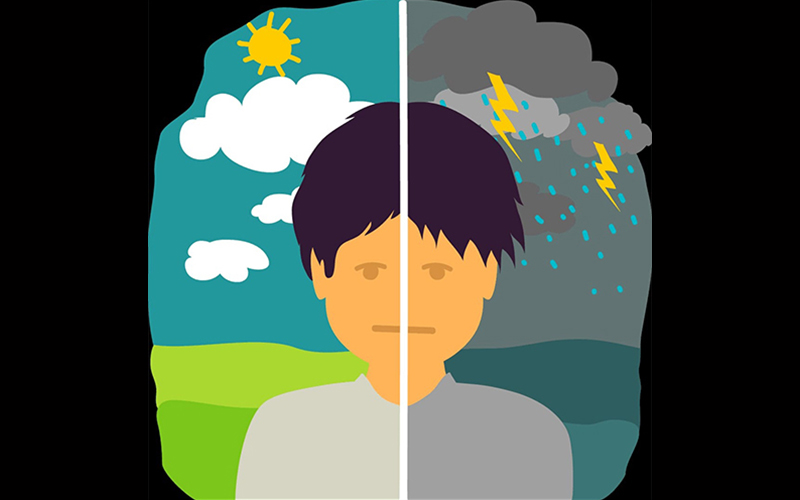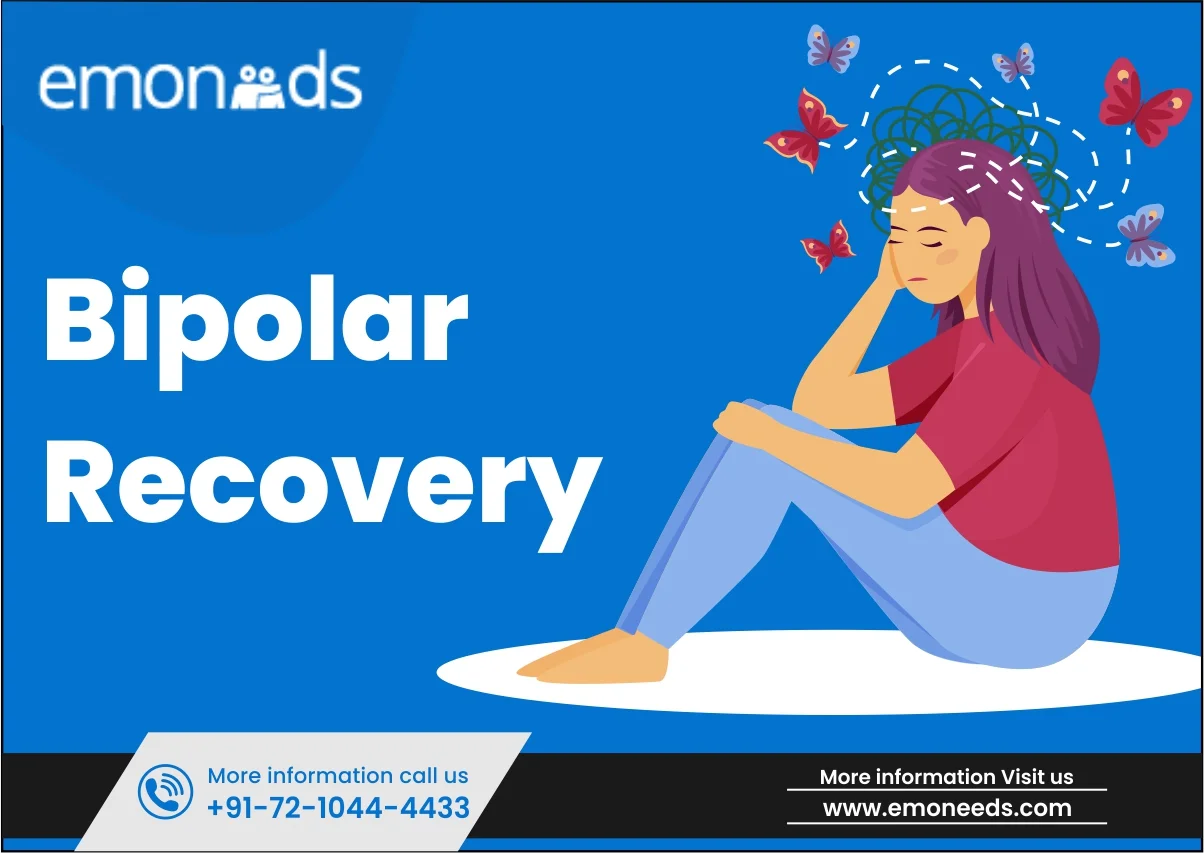
The complicated mental illness known as bipolar disorder is typified by sharp mood fluctuations that can range from highs of mania to depressed lows. For those struggling with bipolar disorder, it is essential to comprehend the healing process. Recovery is a dynamic process with different stages and individual timetables for each person; it is not a universally applicable experience.
Understanding personal experiences, therapeutic approaches, and outside variables impacting the healing process are essential for navigating bipolar recovery. An understanding companion in mental health, Emoneeds is aware of the complexities involved in bipolar recovery. Emoneeds provides information, a secure environment, and assistance to people and those they love with a dedication to individualized care.
We will be exploring the subtleties of bipolar recovery in this blog, with a focus on the value of empathy and the part Emoneeds plays in supporting mental health. Let’s explore the intricacies of bipolar recovery alongside the resources offered by Emoneeds to help you make better decisions about your mental health and feel more in control of it.
Bipolar Disorder
You must first comprehend what bipolar illness is and why it’s such a complex mental health issue to comprehend bipolar rehabilitation. Even though there are many potential causes of bipolar disorder, such as stress, addiction to alcohol and drugs, aberrant brain function, and genetic factors, the condition still affects 1-2% of people in India, which adds significantly to the country’s mental health burden.
Even though the ailment is common, there is frequently a lack of knowledge and comprehension about it, which delays diagnosis and treatment. The stigma attached to mental health problems is a problem, impeding candid conversations and avenues for assistance for individuals impacted.
Emoneeds is making a concerted effort to provide availability to mental health options, reduce stigma, and raise awareness. Our main goal is to promote a thorough and culturally aware treatment of bipolar disease. Through our programmes, we hope to provide a caring atmosphere that recognises and responds to the particular difficulties that people with bipolar illness may encounter.
To make sure that mental health services are not only available but also culturally appropriate for those confronting the challenges of bipolar disease, Emoneeds is dedicated to promoting a comprehensive and compassionate viewpoint.
Bipolar Recovery: What Is It?
It can be challenging to diagnose bipolar disorder until you exhibit those distinctive symptoms of mood episodes, such as fluctuating between tremendous happiness and awful sadness because we still don’t completely understand what causes the condition’s symptoms to manifest. Despite being a brain condition, bipolar disorder may still be treated, and several approaches can lead to bipolar recovery. Since bipolar illness has such profound effects on relationships, the workplace, and all other facets of a person’s life, you most likely seek treatment without understanding what to anticipate or how long it could take.
Factors influencing the duration of Bipolar Recovery
Numerous internal and environmental factors impact the length of bipolar recovery, which in turn shapes the path towards stability.
Individual Elements
- Symptom Intensity: A major factor in determining the length of recovery is the severity and frequency of the bipolar episodes. People who are going through severe episodes could take longer to stabilise.
- Types of Episodes: The kind of bipolar episodes, such as manic, depressive, or mixed episodes, adds to the difficulty of recovery because each may require different approaches and considerations, which can affect how long the healing process takes in total.
- Treatment Compliance: Recovery is greatly impacted by regular adherence to therapy and prescription drugs. Impeding development and prolonging the time required for improvement can be done by missing doses or stopping treatment.
- Coping Ability: It’s critical to have the capacity to create and implement efficient coping mechanisms. People who have adaptive coping strategies at their disposal might overcome obstacles faster, which could reduce the amount of time it takes to recuperate.
- Lifestyle Decisions: Keeping a consistent sleep pattern, controlling stress, and embracing a healthy diet all have a good effect on the length of recovery, highlighting the relationship between lifestyles and mental health.
- Own Effort: A person’s trajectory is influenced by their level of dedication to their recovery process. Effective coping mechanisms and active participation in treatment assist the healing process.
- Recovering more proactively involves taking an active role in treatment, practising self-care, and cultivating a positive outlook. Adopting a proactive attitude to rehabilitation, accepting self-awareness, and engaging in psychological education about the condition empower individuals.
Environmental Elements
Early Symptom Recognition: By facilitating early intervention and reducing the effect of the condition, prompt symptom recognition speeds up recovery.
Support System: It’s important to have a group of friends, family, and mental health specialists around you. Support in the form of awareness, encouragement, and emotional support fosters a healing atmosphere that may accelerate recovery.
Stigma and Understanding: Open communication and assistance for those dealing with mental health concerns can be impeded by societal stigma. Recovering faster is favourably impacted by fostering a more supportive atmosphere by raising awareness and lowering stigma.
Therapeutic connection: The individual and mental health specialists must have a high-quality therapeutic connection. Establishing a relationship based on trust and collaboration can improve therapy efficacy and potentially expedite recovery.
Bipolar Recovery Stages
Bipolar healing comprises several phases, each of which is crucial in and of itself.
- The goal of the Acute Phase is to provide the groundwork for later phases by stabilising symptoms with treatments such as medication modifications and psychoeducation.
- As the patient enters the Maintenance Phase, the focus changes to avoiding relapses and preserving stability, with medication compliance and therapy being crucial components.
- During the prolonged time of stability known as the Sustained Phase, people strive to maintain their success by continuing to receive assistance and taking care of themselves.
The assistance of a complete treatment team is essential throughout. Realising that the stages are not linear helps people go through them with resilience, creating a long-lasting and comprehensive route to well-being.
How Much Time Is Needed for Bipolar Recovery?
Bipolar illness is inherited. Since there is a hereditary component, as you may remember, you may be able to gauge your own level of recovery by seeing how other family members have handled therapy and attempts at recovery. Naturally, each person will respond differently and have a distinct rehabilitation and treatment plan based on their own stress levels, drug misuse issues, health issues, and a variety of other things. That being said, bipolar recovery often takes one to eighteen months to manifest.
Your bipolar recovery and symptoms may differ slightly from those of other family members if alcohol and/or drugs were used to trigger your bipolar condition. It’s also conceivable that other family members have not shown symptoms severe enough to warrant a diagnosis. You should be conscious of how your double diagnosis may impact your recovery, regardless of the way you have been impacted and how you are now recovering. If you’re seeking a stable baseline, recuperation might sometimes take considerably longer than 18 months.
How Is Treatment for Bipolar Disorder Provided?
Although there is no known cure for bipolar illness, there are effective therapies that help lessen the symptoms’ negative consequences on a person’s life and relationships. Although bipolar disorder can have an impact on your life, with the help of knowledge, therapy, and medicine, you can learn to manage and lessen the symptoms. Among the most popular types of care we employ are:
- Psychiatric care: You can work towards your recovery with the assistance of our skilled and licenced psychiatrist.
- Medication management observation: To provide you with the desired functional experience, we keep an eye on your prescription and change it as necessary.
- Counselling: Either alone or in a group, counselling is another powerful tool for advancing on your path to recovery and self-discovery.
- Case management: We assist you in comprehending the steps necessary to maintain and regulate your physical and emotional well-being.
- Cognitive-behavioral therapy (CBT): CBT is a popular treatment for bipolar illness. It supports people in managing their stress, recognising and changing negative thought patterns, and creating coping mechanisms.
- Daily activity: To keep yourself occupied, you might create a full calendar of activities. Engaging in such things might also help you in your quest for meaning and purpose in life.
How Emoneeds Can Help?
With so many different treatment choices at our disposal, we will collaborate with you to create a plan that best suits your requirements and interests. Our aim is to make you feel secure and at ease while visiting Emoneeds. Regardless of where you are in your bipolar rehabilitation journey, we want you to understand that you’re not alone.
Emoneeds recognises the complexity of bipolar illness and goes beyond treating its symptoms by investigating its underlying causes. The treatment strategy takes into account not only the medical components of the illness but also the psychological and outside factors that have an impact on an individual’s health.
You are always welcome to get in touch with our knowledgeable staff of certified and licensed experts if you require the help and understanding you’re seeking right now. We provide practical expertise and understanding to assist you in making the long-term and necessary bipolar recovery.
